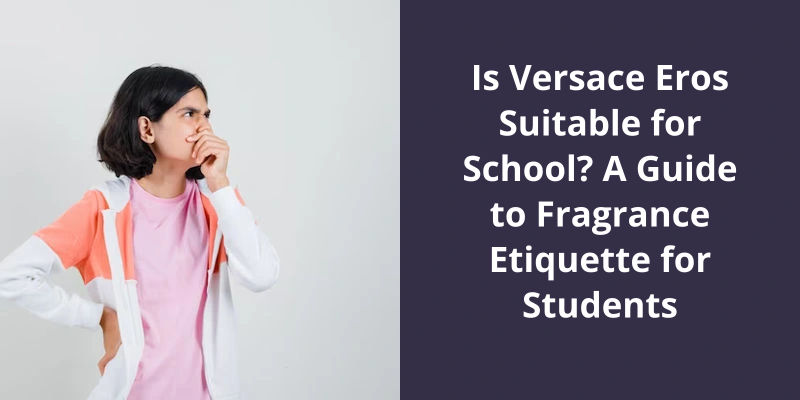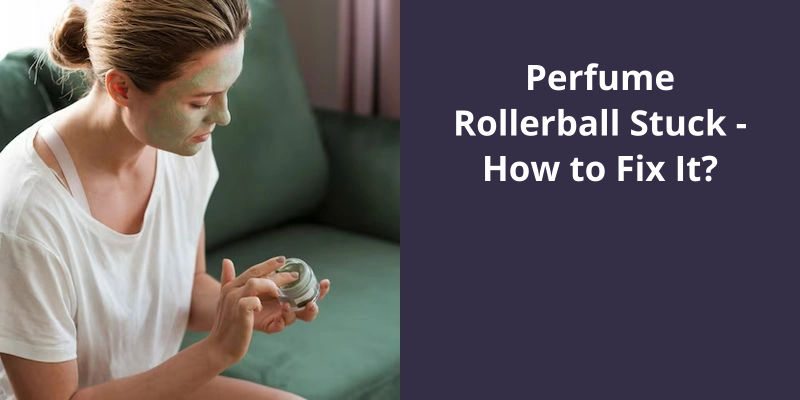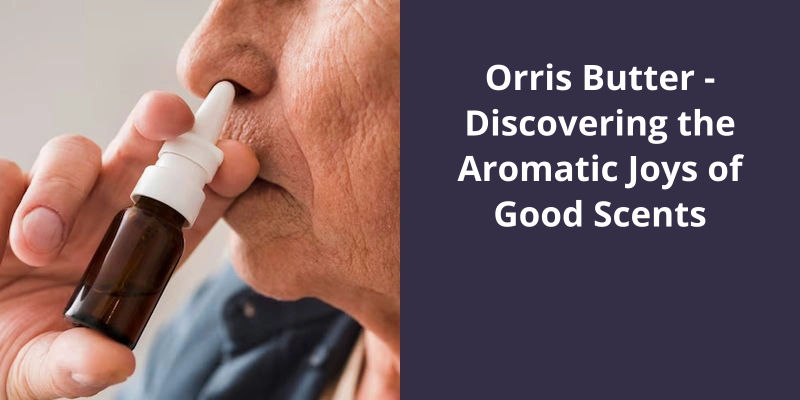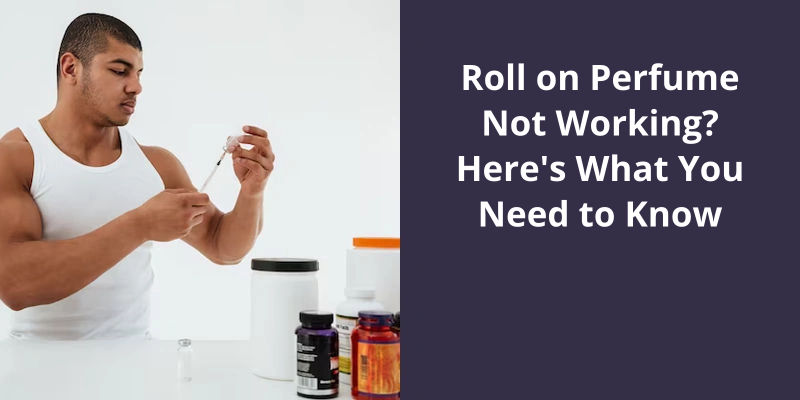When applying fragrance for school, you should focus on pulse points which are areas where your blood vessels are closest to the skin. These points include the wrists, behind the ears, at the bottom of the throat, inside of the elbows, and behind the knees. You should lightly dab or spray the fragrance onto these areas without rubbing it in as this can alter the scent. However, remember to keep the fragrance light since strong scents can be distracting in a school setting.
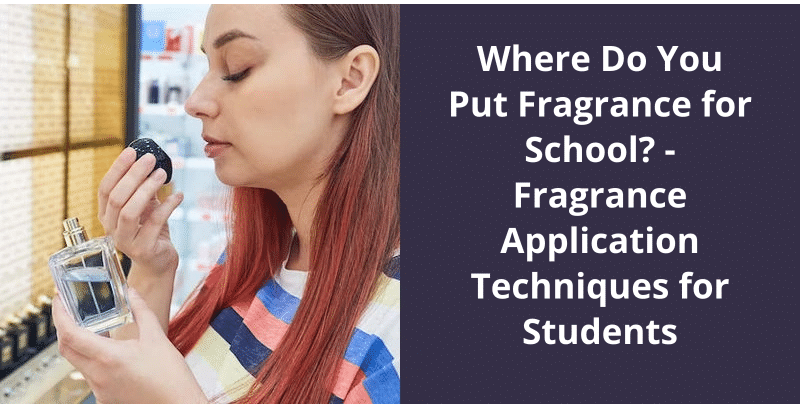
Where and How to Apply Fragrance?
When it comes to wearing fragrance, a lot of people only tend to think in terms of how they smell in the moment. But the best way to apply fragrance is to think about how it will interact with your body over time. This means that you need to be careful about the places where you apply it, as well as the amount that you use.
One of the best places to apply fragrance is on your pulse points. These are areas where your skin is especially warm, such as the inside of your wrists or the back of your knees. Applying fragrance to these areas will help to diffuse the scent throughout your body, providing a more long-lasting effect than if you simply sprayed it onto your clothes.
Another great spot to apply fragrance is on your collarbone. This is an area that tends to have a lot of movement, which helps to aerate the scent and make it more noticeable to those around you. Additionally, using a fragrance with a sweeter or more floral scent on this area can help to create a romantic vibe, as it will blend with the natural scent of your own skin.
If youre a fan of layering fragrances, then you might want to consider applying a fragrance to your hair as well. This can be especially effective if you use a fragrance that’s light and fresh, as it will help to create a clean and refreshing scent that will last for hours.
Whatever you do, be sure to apply your fragrance sparingly. Too much can be overpowering, and can actually be unpleasant for those around you. Instead, start with just a small amount and build up slowly until you find the level that works best for you.
Tips for Choosing the Right Fragrance for Your Skin Type
- Know your skin type: Is it oily, dry, or normal?
- Consider the scent categories: Citrus, floral, woody, spicy, and oriental.
- Test the fragrance on your skin: A fragrance can smell differently on different people.
- Don’t rush to make a decision: Let the fragrance settle on your skin for a few hours before deciding if you like it.
- Choose a fragrance that matches your personality and style.
- Consider the occasion: Some fragrances are more appropriate for daytime or nighttime wear, while others are versatile.
- Lastly, always trust your nose and instincts when choosing a fragrance.
Properly applying perfume is essential to ensure your scent lasts throughout the day. Knowing where to apply your fragrance can make all the difference in maximizing it’s longevity. Therefore, it’s essential to know which are the best spots to spray perfume for school.
Where Do You Spray Perfume for School?
Additionally, it’s important to understand your personal scent preferences and how they may change throughout the day. For example, you may prefer a lighter fragrance during your morning classes and a stronger scent for evening activities. Also consider the size of the room or space you’ll be in as well as the weather. If you’ll be in a smaller classroom or library, a lighter fragrance may be more appropriate to avoid overwhelming others.
It’s important to note that some schools have policies regarding perfume and other scented products due to allergies or sensitivities. It’s always best to check with your school’s policies and consider the well-being of your fellow students when choosing your fragrance.
When applying perfume, it’s suggested to spray it on your skin rather than your clothing. This allows the fragrance to mix with your natural oils and develop into a unique scent that’s all your own.
In addition to pulse points, there are other areas on the body where perfume can be applied for a longer lasting scent. These include the backs of the knees, the inner elbows, and the ankles. However, it’s important to avoid spraying perfume near your face or hair, as this can be irritating to the skin and eyes.
Ultimately, the choice of where to spray perfume for school is a personal one and can vary based on individual preferences and circumstances. Whether you opt for a light, fresh scent or a bold, statement fragrance, the key is to apply it correctly and with consideration for those around you.
When it comes to dealing with unwanted scents in school, vinegar is a great solution. Not only is it an everyday cleaner, but it’s chemical properties make it effective in removing perfumes and colognes from clothing. In this article, we’ll explore why vinegar is a great option and other methods to consider.
How Do You Get Cologne Off at School?
To remove cologne at school, start by blotting the area with a clean cloth or paper towel to absorb as much of the scent as possible. Next, mix equal parts water and white vinegar in a small bowl or spray bottle. Apply the solution to the affected area and let it sit for a few minutes to penetrate the fabric.
After a few minutes, rinse the area with cool water to remove any traces of vinegar. If the scent is still present, repeat the process until you’ve achieved the desired result. Vinegar is a tried and true method for removing all sorts of smells from clothing, and it’s easy to use and readily available.
This method may work best for more delicate fabrics that cant handle the acidity of vinegar. Rubbing alcohol is also a disinfectant, so it can help kill any bacteria that may be causing the scent.
Method 3: Apply Baking Soda. This mild abrasive can gently lift stains and odors from clothing without damaging the fabric. To use baking soda, simply dampen the affected area with water and sprinkle a generous amount of baking soda over it.
Gently scrub the area with a soft-bristled brush or your fingers, focusing on the places where the cologne was applied. After scrubbing for a few minutes, rinse the area with cool water and repeat the process if needed.
Method 4: Air Dry Outdoors. If all else fails, and you don’t have access to any of the above methods, simply hang your clothing outside to air dry. Fresh air and sunlight can work wonders at removing smells from clothing, including cologne.
Hang the affected items outside in a well-ventilated area and let the fresh air do it’s magic. If possible, choose a spot that gets direct sunlight, as the UV rays can help kill any bacteria that may be causing the scent.
By following these methods, you can ensure that your clothing stays fresh and odor-free, no matter what.
Tips for Avoiding Using Too Much Cologne in the First Place
Here are some tips to avoid going overboard with your cologne:
1. Start with a small amount: It’s always better to err on the side of caution and start with a little cologne.
2. Spray from a distance: Keep a distance between you and the cologne bottle when spraying. This will help to evenly distribute the fragrance without using too much.
3. Don’t apply to clothes: Cologne is meant to be applied to your skin, not your clothes. Applying it to your clothes can make you smell overpowering.
4. Listen to feedback: If people around you’re coughing or holding their noses, it’s a sign that you may have gone overboard.
5. Choose a cologne with a lighter fragrance: There are colognes that are designed to be lighter and more subtle. Choosing one of these can help to avoid overdoing it.
Now that we know that fragrance oils can be applied to the skin, let’s explore how to properly do so. Whether you’re looking to apply it directly or dilute it with a carrier oil, there are a few essential tips to keep in mind to ensure your skin stays safe and healthy. So, let’s dive in!
Can You Put Fragrance on Your Skin?
Fragrance is an essential part of our daily grooming routine. It’s the power to uplift our mood and make us feel more confident. However, using fragrance on your skin isn’t as straightforward as it seems. Fragrance oils are highly concentrated and can cause irritation or allergic reactions if applied directly to the skin. It is, therefore, necessary to dilute the oil before using it topically.
To dilute fragrance oil, you can mix it with a carrier oil, such as jojoba or almond oil. The ratio of fragrance oil to carrier oil should be 1:3 or 1:This means that for every drop of fragrance oil, you need to add three or four drops of carrier oil. Mix the oils well and then apply it on your skin. The carrier oil won’t only dilute the fragrance oil but also moisturize your skin.
Before applying fragrance oil on your skin, it’s always recommended to do a patch test. Apply a small amount of diluted oil on a small area of your skin, such as your inner elbow or wrist. Wait for 24 hours and check for any redness, itching, or irritation. If you experience any of these symptoms, wash the area with soap and water and avoid using fragrance oil on your skin.
However, don’t apply it on your skin in an undiluted form. The fragrance will evaporate from your clothes and hair, providing a long-lasting scent.
Some oils, such as cinnamon or clove oil, are known to be skin irritants. It’s best to avoid using such oils or use them in extremely small quantities. Also, avoid applying fragrance oil on broken or damaged skin.
DIY Fragrance Recipes Using Natural Ingredients
- Lemon and lavender room spray recipe:
- 1 cup distilled water
- 2 tablespoons witch hazel
- 10 drops lavender essential oil
- 10 drops lemon essential oil
- Orange and clove potpourri recipe:
- 1/2 cup dried orange peels
- 1/4 cup whole cloves
- 1 cinnamon stick
- 1 teaspoon ground nutmeg
- 1/4 teaspoon vanilla extract
- Mint and eucalyptus shower steamer recipe:
- 1 cup baking soda
- 1/3 cup water
- 15-20 drops eucalyptus essential oil
- 10-15 drops peppermint essential oil
Conclusion
Instead of overloading yourself with perfume, stick to just a small amount applied to your pulse points, such as your wrists and behind your ears. This not only ensures that you won't be overwhelming your classmates with a strong scent, but it also allows you to enjoy the fragrance without going overboard. Keeping this in mind won’t just make you smell nice, but also create a comfortable environment for you and those around you. So next time you're getting ready for school, remember – less is more.


